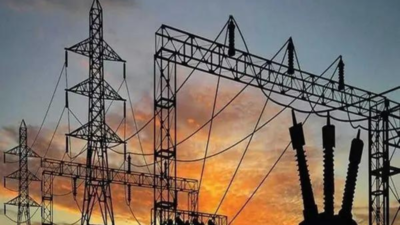- News
- World News
- Pakistan News
- Power struggle: Karachi residents left in dark due to illegal electricity and infrastructure issues
Trending
Power struggle: Karachi residents left in dark due to illegal electricity and infrastructure issues
Karachi residents endure prolonged power outages and electricity theft, disrupting daily life and schoolwork. Load shedding spans up to 12 hours, causing significant inconvenience. Local individuals allegedly sell electricity illegally with the help of K-Electric employees. Although steps are being taken to address these issues, implementation remains slow.

Pakistan's Karachi yet again witnessed prolonged power outages and electricity theft in neighbouring areas, disrupting the lives of residents.
The lives of New Karachi residents became miserable after witnessing almost 12 hours of load shedding. Even when the electricity was restored, people face difficulties to fill their water supply.
Farooq Khan, Muhammad Tariq and Babar while talking to The Express Tribune said that power cuts occur from 7am to 8:30 am (Pakistan time); 9:30 am to 12 pm; 2:3o pm to 5 pm, and from 7 pm to 10:30 pm and then from 12:30 am to 1:30 am and sometimes the power supply is suspended from 8am to 10pm, they said.
This disruption severely impacts resident's work the next day. Additionally, the school children also incur difficulty in completing their homework.
"The kunda mafia is making profit by illegal sale of electricity," said Shoaib, Shahrukh, Badar, Qudrat Qureshi, and Kamran Qureshi. They alleged that two individuals, Momin and Zubair, are supplying electricity with the assistance of certain K-Electric field employees.
Dishonest individuals within the power company have permitted the unlawful sale of electricity through cables extending from the North Karachi Industrial Area to adjacent slums. The industrial zone experiences no power outages.
The unscrupulous elements in the power utility have allowed illegal sale of electricity through cables running from the North Karachi Industrial Area to nearby slums. There is no loadsheding in the industrial zone, according to The Express Tribune.
Karachi Electric (KE) is the main electricity utility in the area, but the electricity sector has been plagued by several issues: ageing infrastructure, insufficient finances, and sometimes poor management of the utility.
Although steps have been made to mitigate the issues: financing new electrical facilities, implementing new regulations, etc., these steps more often than not take time before being fully put into place and completed.
The lives of New Karachi residents became miserable after witnessing almost 12 hours of load shedding. Even when the electricity was restored, people face difficulties to fill their water supply.
Farooq Khan, Muhammad Tariq and Babar while talking to The Express Tribune said that power cuts occur from 7am to 8:30 am (Pakistan time); 9:30 am to 12 pm; 2:3o pm to 5 pm, and from 7 pm to 10:30 pm and then from 12:30 am to 1:30 am and sometimes the power supply is suspended from 8am to 10pm, they said.
This disruption severely impacts resident's work the next day. Additionally, the school children also incur difficulty in completing their homework.
Residents of new Karachi Industrial Area Sector 11 F and No 6.5 reported that if electricity is available for an hour during the day, it will be unavailable for three hours at night.
"The kunda mafia is making profit by illegal sale of electricity," said Shoaib, Shahrukh, Badar, Qudrat Qureshi, and Kamran Qureshi. They alleged that two individuals, Momin and Zubair, are supplying electricity with the assistance of certain K-Electric field employees.
Dishonest individuals within the power company have permitted the unlawful sale of electricity through cables extending from the North Karachi Industrial Area to adjacent slums. The industrial zone experiences no power outages.
The unscrupulous elements in the power utility have allowed illegal sale of electricity through cables running from the North Karachi Industrial Area to nearby slums. There is no loadsheding in the industrial zone, according to The Express Tribune.
Karachi Electric (KE) is the main electricity utility in the area, but the electricity sector has been plagued by several issues: ageing infrastructure, insufficient finances, and sometimes poor management of the utility.
Although steps have been made to mitigate the issues: financing new electrical facilities, implementing new regulations, etc., these steps more often than not take time before being fully put into place and completed.
End of Article
FOLLOW US ON SOCIAL MEDIA











